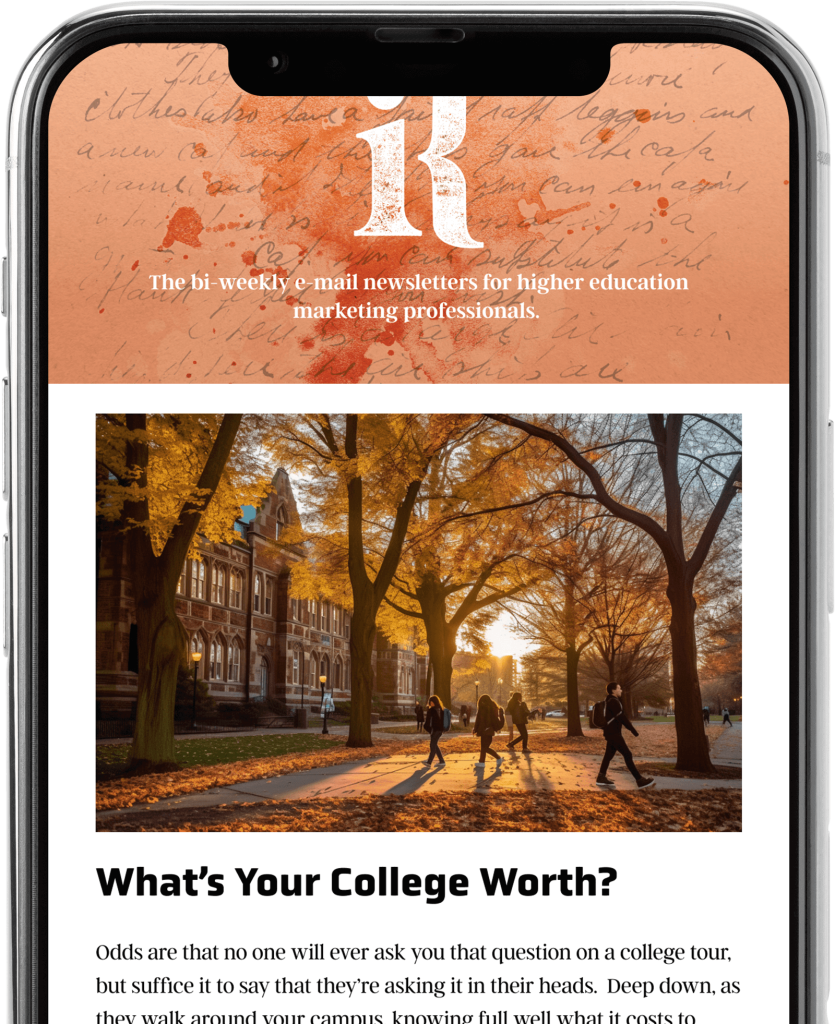Higher Education ROI
Higher Education about Higher Education

Higher Education about Higher Education
You don’t have to look (or listen) hard to hear a great deal of negativity about the value of a college degree. If you run a Google search on ‘college isn’t worth it anymore,’ you’ll find studies, surveys, and rants about why college (according to them) isn’t worth it. Headlines from sources ranging from The New York Times and The Wall Street Journal to Money Magazine and Forbes allude to the growing sentiment that the benefits that a college degree brings no longer outweigh the cost of that degree. Popular podcasts also question the value in great detail, only adding to the growing chorus that college isn’t worth it. The media certainly doesn’t seem to be a cheerleader for the 4-year degree.
But the truth of the matter is that by most measures, the college degree is the far better choice. This does not mean that college is affordable for everyone, certainly. After all, tuition seems to have only gone up and up in recent decades leaving many without access. As much as that is a hard pill to swallow for all of us that want everyone to have access to college that wants it, access and affordability aren’t primary duties within the job description of the higher education marketer. And to be sure, declining affordability and access doesn’t negate the fact that college is worth it, and it should be within the higher education marketer’s role to reinforce this notion within marketing programs.
In light of the media landscape sharing a great deal about affordability and access, if institutions aren’t flying the flag of value—that college is worth it—who will? Marketers should be delivering higher education about higher education: helping prospective students that there are two sides of any value equation. Yes, there are costs. But have they understood the benefits?
If we wanted to write a manifesto about the value of higher education, we’d have plenty to work with. Here are some of the ways that college delivers, both in terms of tangible and intangible benefits:
- Expanding Horizons: College education serves as a beacon, illuminating the vast expanse of knowledge previously unknown or unexplored by high school curricula. It fosters critical thinking, encourages intellectual curiosity, and nurtures the spirit of inquiry, equipping students with a broader perspective of the world.
- Higher Earning Potential: According to the Bureau of Labor Statistics (2020), individuals with a bachelor’s degree earn approximately 65% more than those with only a high school diploma. This stark differential underscores not just the immediate financial benefits but also highlights the long-term economic stability afforded by a college degree. And according to the Federal Reserve Bank of New York, the wage gap between recent college and high school graduates continues to widen. As recently as 2023, college graduates between the ages of 22-27 with full time positions earned $24,000 more per year than their counterparts with only a high school degree. And according to research, this gap is likely to only widen in the coming decades.

- Lower Unemployment Rates: Data consistently shows that the unemployment rate for individuals holding a bachelor’s degree is significantly lower compared to their counterparts with only high school education. This resilience in the job market accentuates the protective buffer a college education provides against economic downturns.
- Beyond the Textbook: College is more than lectures and exams. It’s about intellectual growth. You’ll delve into new subjects, develop critical thinking skills, and learn to analyze information effectively. A 2016 study by the Pew Research Center [4] showed that college graduates are more likely to be engaged in civic activities and participate in discussions about current events.
- Skill Acquisition: The modern job market demands a diverse set of skills – both hard and soft. College education is meticulously designed to equip students with this skill set, ranging from analytical thinking to effective communication, thus preparing them for a wide array of professional environments.
- Independence and Responsibility: The transition to college marks a significant step towards adulthood, instilling a sense of independence and responsibility. This environment encourages personal growth, time management skills, and self-discipline—crucial attributes for life beyond academics.
The rationale for higher education doesn’t end there. It’s just the beginning. And for institutional marketers, they should be beginning to tell the story as well within their other messaging about the specific value proposition offered by their institutions. After all, if we don’t, who will?
Like what you're reading?
Subscribe to our newsletter to get the latest insights in Higher Education and thought leadership.


